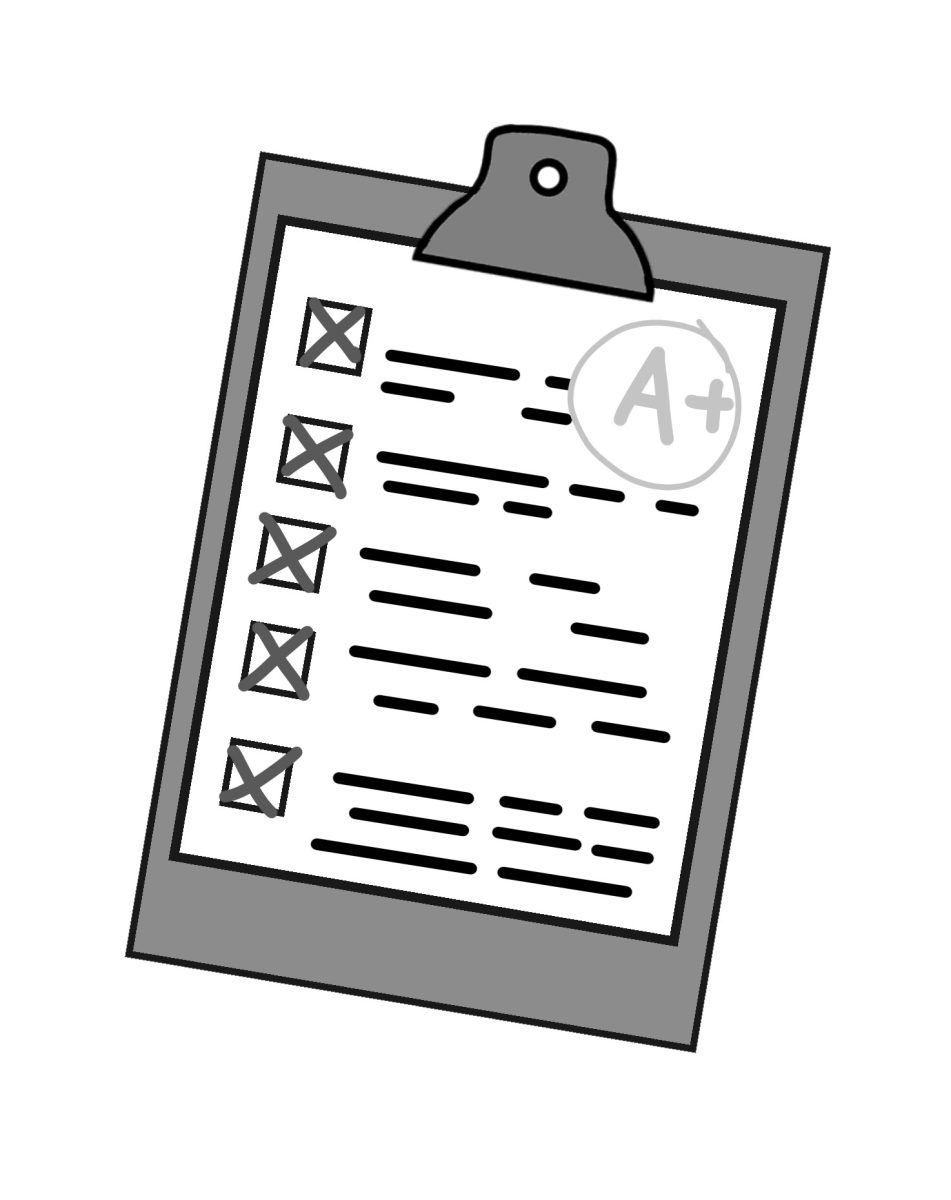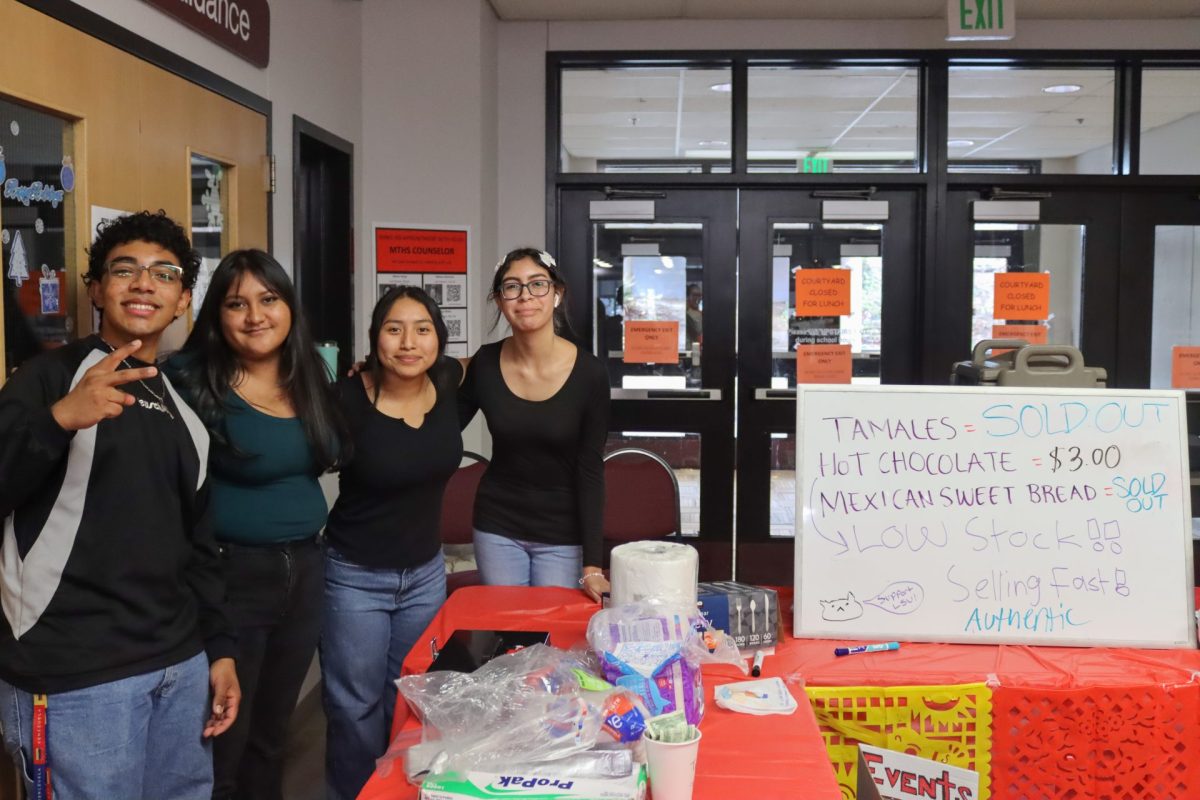Have you ever spent an all-nighter studying for a test just to fail? Or crammed in the last second and got an A? Tests have begun to become a prominent theme as COVID came to an end. For example, the Smarter Balance Assessment (SBA) returned after being removed during the pandemic a couple of years back. Additionally, tests in general now hold a tight grip on students’ education.
With that said, are tests essential for the education of students? As the end of the year creeps closer, the pressure of finals and the SBA looms over the students of MTHS. According to Adam Bazant, world and U.S. history teacher at MTHS, he said, “Necessary? No. Important? Yes.” Students can learn and understand content without testing. However, tests are important to ensure students are meeting the standards upheld in a public education setting.
Under the umbrella of the testing genre, state testing holds importance for the state, as well as the students. When asked his thoughts on state testing, chemistry teacher John Traxler, replied, “I understand the need for it. The state has a responsibility to know whether we are doing our job or not.” As said earlier, it’s recognized that students can gain knowledge without testing, however, teachers need to uphold a standard when it comes to teaching their students. State testing is not only a check on the students, but the teachers’ abilities as well. SBA was created for this very reason.
“The SBA is designed to measure how well our students are progressing toward meeting the new student learning standards.” said in the academic testing category of mths.edmonds.wednet.edu. This is to ensure the future of students and prepare them for college. The Scholastic Aptitude Test (SAT), is another example of this. Many colleges require students to take the SAT, and even if they don’t it is recommended to prepare them for college.
AP – or Advanced Placement – is another form of college preparation. When asked about the differences between AP and regular testing, Bazant replied, “The AP tests, at least in my class, are designed after the AP exam.” The AP exam is made from a database of AP-specific questions from an institution known as the College Board. They run the Advanced Placement programs nationwide.
Rather than AP classes being formed around its students’ progression, it is formed around the exam. But how does this prepare you for college? Well, Traxler said, “College is often a mid-term and a final, and if they get used to that all-encompassing giant test, they do, generally, a little better when they get there.” This is why AP prepares its students for college, both are formulated around testing and the results of those tests.
Students become used to the test-prominent environment in the AP setting, which leads them to do better in college.
On the other side of the coin, tests can be argued that they are unamiable when it comes to the education of students. Ahmadjon Ibrohinob, a sophomore, when asked if he remembered any of the material after a test, replied with a simple, “No.”
Although a test may keep track of your knowledge at the moment, it fails to adhere to a profound, lasting knowledge of the material. For example, students typically study a few days before a test, often cramming at the last second for the sake of passing. This in turn conceives unhealthy learning habits, often leading students to forget what they ‘learned’.
In addition, COVID has created many hiccups in the educational system. Students are almost a year behind when it comes to their education. Looking at the COVID-19 School Data Hub, statistics show a score of 46.9% in 2021 for the ELA SBA for grades 3-8. Although there has been a steady incline between 2021 and 2023, with the score being 48.8%, it falls short of pre-covid statistics, which show a score of 58%. With almost a ten percent difference, this shows there is still a way to go before students have fully recovered from COVID-19.
Now to answer the main question, are tests essential for the education of students? Maybe not, but they hold an important role regardless.
Tests allow teachers to see if they properly taught students the material. They challenge students, allowing schools to know the extent of their knowledge. However, the substantial foothold tests have in education has strayed from their main purpose, to test students not to teach them.
Categories:
Are tests and exams really necessary?
©HAWKEYE image credit: Adrian Knowlton
Story continues below advertisement
0
About the Contributors

Kaelynn Bagley, Hawkeye Staff
Kaelynn Bagley joined journalism in 2023 to improve her writing skills and experience writing different forms of literature. She strives to put effort into everything she does and learn something new along the way. In her free time, Kaelynn enjoys reading and painting, as well as playing violin. Her post-high school plans are to get into a music school and study to become a professional musician.

Adrian Knowlton, Photo Editor
Adrian Knowlton initially joined HSM in 2022 to pursue his love for photography and writing. He first started Journalism in 7th grade at BTMS and was a writer for the Bulldog Brief. From there he went from writer to part time writer and photographer to being apart of Community and Belonging with some of his fellow peers. As of now, he is currently a writer and photographer for HSM and does a little bit of graphics on the side. In his free time Adrian likes to draw and write.
More to Discover












